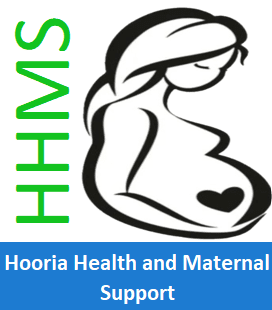Nutrition for New Moms: Foods That Support Healing & Energy

Posted on October 20th, 2025
Introduction: Food as Healing, Not Just Fuel
After childbirth, your body needs rest, nourishment, and time to rebuild. What you eat during this period can have a profound effect on your recovery, energy, mood, and milk supply.
At Hooria Health and Maternal Support, we see postpartum nutrition as more than calories; it’s comfort, healing, and connection. In many cultures, food after birth is sacred, prepared with care to help mothers regain strength. Whether you follow traditional practices or modern nutrition advice, the goal is the same: to heal and thrive.
1. Why Nutrition Matters After Birth
Your body has just done something extraordinary. Now, it needs help repairing tissues, restoring blood, balancing hormones, and producing milk (if you’re breastfeeding).
Good nutrition can help you:
• Recover faster and feel stronger
• Stabilize your mood and reduce fatigue
• Support healthy milk production
• Prevent constipation and dehydration
• Strengthen your immune system
The right foods make healing feel possible, day by day, bite by bite.
2. Focus on Warm, Comforting Foods
Across many cultures, postpartum foods are warm, soft, and easy to digest. That’s no coincidence. Warm meals improve circulation and help the body release tension and inflammation.
Try:
• Soups and stews: Chicken soup, lentil stew, or bone broth for hydration and minerals.
• Cooked grains: Oatmeal, rice porridge, or millet cooked with milk or nut butter.
• Lightly cooked vegetables: Carrots, spinach, pumpkin, and zucchini.
• Teas and warm drinks: Herbal teas like fenugreek, ginger, or chamomile to soothe digestion.
Avoid icy drinks and raw foods in the first weeks if your tradition emphasizes warmth, as these can slow digestion and energy recovery.
3. Eat Protein-Rich Meals for Recovery
Protein helps rebuild tissues and muscles after delivery. Include:
• Eggs, chicken, or fish (if culturally appropriate)
• Lentils, beans, or chickpeas
• Nuts, seeds, and nut butters
• Greek yogurt or milk (for calcium and probiotics)
Aim for small, frequent meals to keep your energy steady throughout the day.
4. Choose Iron-Rich Foods to Rebuild Strength
Blood loss during birth can lead to low iron levels, causing fatigue and dizziness. Replenish your stores with:
• Lean meats or liver (if part of your diet)
• Dark leafy greens (spinach, kale, collard greens)
• Dried fruits (dates, raisins, apricots)
• Iron-fortified cereals and grains
Pair iron-rich foods with vitamin C (like citrus or bell peppers) to help your body absorb nutrients more efficiently.
5. Stay Hydrated, Especially If Breastfeeding
Breastfeeding mothers need more fluids than usual. Dehydration can cause headaches, fatigue, and low milk supply.
Drink plenty of:
• Water
• Herbal teas (avoid strong caffeine early on)
• Warm milk with honey or dates for gentle nourishment
Keep a water bottle near your feeding area as a reminder to sip while nursing.
6. Don’t Forget Healthy Fats
Healthy fats support hormone balance and brain function. Include:
• Avocados
• Olive oil or ghee
• Fatty fish (like salmon)
• Chia seeds or flaxseeds
These foods also help your body absorb fat-soluble vitamins (A, D, E, K), which are vital for recovery.
7. Gentle Foods for Digestive Healing
After delivery, your digestion can be sensitive. Ease discomfort by eating:
• Warm, cooked meals instead of raw foods
• Fiber-rich options (oats, lentils, fruits)
• Soothing herbs like fennel or cumin in your cooking
If constipation becomes an issue, try warm lemon water in the morning or gentle herbal teas approved by your provider.
8. Cultural Comfort Foods Are Powerful
Many traditional postpartum meals, like Somali canjeero with milk, congee from East Asia, or spiced lentil stews from Ethiopia, have stood the test of time because they truly nourish.
At Hooria Health and Maternal Support, we honor these foods as part of healing. They connect mothers to home, family, and culture, reminding them that they’re surrounded by generations of wisdom and love.
9. Foods to Limit or Avoid (Especially Early On)
While every culture is different, it’s best to limit:
• Highly processed or fried foods
• Sugary snacks and drinks
• Excess caffeine
• Alcohol (if breastfeeding)
These can deplete energy, affect milk supply, or worsen postpartum mood swings. Balance is key. Enjoy treats occasionally, but focus on what helps you feel restored.
10. Make Nutrition Part of Your Self-Care
Eating well isn’t a chore, it’s an act of self-love. If possible, ask for help with meal prep, grocery shopping, or cooking. You can even prepare meals in advance before giving birth.
And remember: nourishing your body also nourishes your baby, your energy, and your peace of mind.
Final Thoughts: Feed Your Healing, Not Just Your Hunger
Every meal after birth is a small step toward strength. Be gentle with yourself, savor the warmth, and honor your body’s needs.
If you’d like help building a postpartum nutrition plan that fits your culture and recovery goals, reach out to Hooria Health and Maternal Support. Our doulas and wellness team can guide you toward foods that restore balance, comfort, and vitality.
Contact Hooria Health and Maternal Support today to start a conversation about postpartum nutrition and recovery support.
Contact Us
Reach Out Today
Explore our caring maternal health solutions designed for you. Connect with our team today and begin a journey towards empowerment and support for you and your family.
